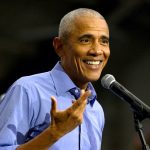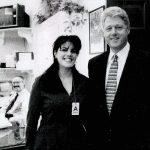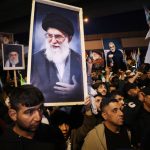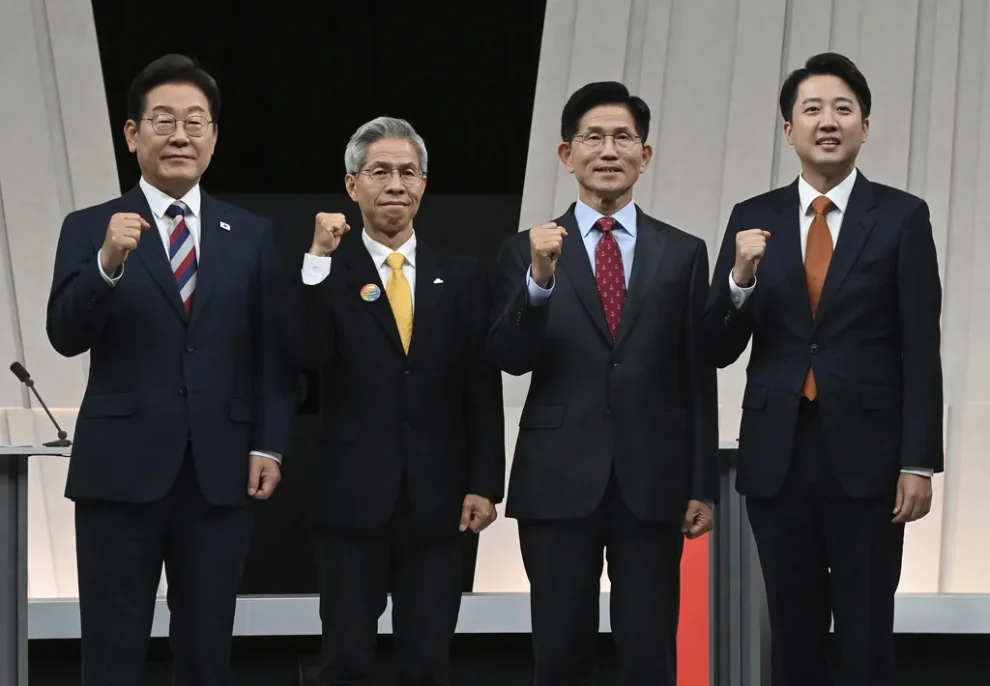South Korean politics nearly imploded after former President Yoon Suk Yeol declared martial law at the end of last year.
He alleged that a grand conspiracy of communists, North Korean assets, and subversive radicals had compromised the National Assembly and federal government.
By the end of the week, the declaration had been rendered invalid by a National Assembly vote, and the overnight dictator was making a televised apology for his behavior, blaming the episode on his “desperation as the president.”
It’s an uncomfortable act to follow, but South Koreans will head to the polls on Tuesday morning (Monday at 5:00 p.m. EST) to select a new leader as their predecessor awaits trial.
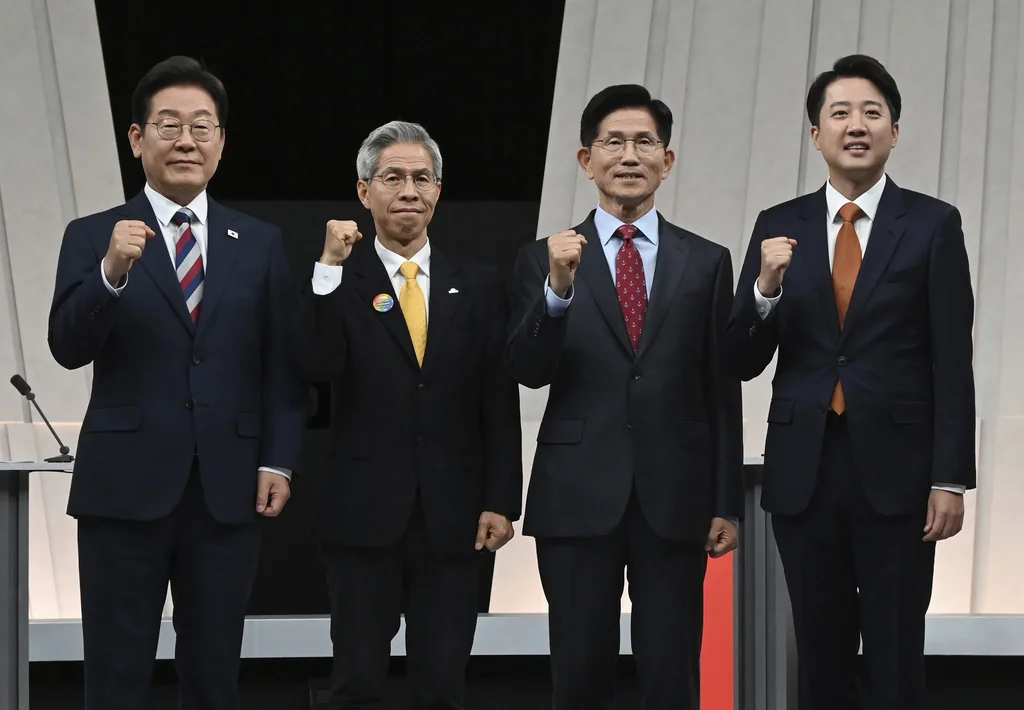
Democratic Party candidate Lee Jae-myung is the obvious odds-on favorite to succeed Yoon, currently polling in first place with a double-digit lead.
Lee, who survived an attempted assassination last year, was defeated by Yoon in the 2022 presidential election, and observers immediately suspected that he would run for the office again in 2027. That opportunity has come years early.
The Democratic Party leader is positioning himself as a candidate of change who can overhaul the country domestically and internationally. While maintaining deference to the United States and assuring the voting public that he will befriend U.S. President Donald Trump, Lee has also lamented the country’s dismal and worsening relationships with China and North Korea.
Lee does not see cooperation with Washington as mutually exclusive with olive branches to Pyongyang and Beijing.
He has laid the blame for almost all South Korean woes at the feet of the conservative People Power Party, of which Yoon was a member.
That made him appear stand-offish and controversial until the martial law debacle. Now, he’s scooping up former conservatives who feel betrayed and want to clean the slate for a new type of South Korean politics.
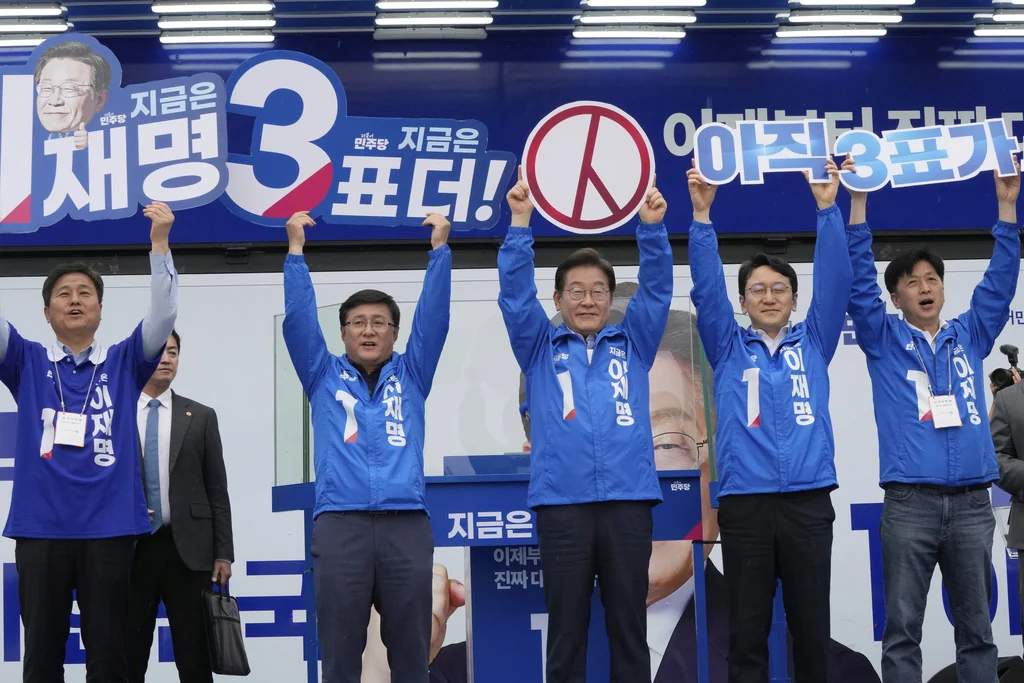
Following Yoon’s brief misadventure into authoritarianism, the PPP made a spectacle of its apologies.
PPP candidate Kim Moon-soo was notable for seeming apathetic toward what had transpired, and even said that he would not kick the former president out of the party.
The statement won over die-hard conservatives in the country, who began affectionately calling him “stubborn Moon-soo,” but failed to impress voters who felt genuine outrage about the martial law decree.
Kim has since offered a few apologies, calling the emergency powers “inappropriate” and noting he should have acted more aggressively to curb the former president’s actions.
“Even if it is an authority granted under the Constitution, imposing martial law unless there is a national emergency that cannot be controlled by police power is inappropriate,” Kim told the press last month. “I sincerely and respectfully apologize.”
He has accused Lee of harboring too much sympathy for China and North Korea, asserting that any gestures of goodwill to the anti-Western nations would damage South Korea’s relationship with its most important ally — the U.S.
Despite his wide reach on social media and appeal to entrenched conservatives, Kim is significantly down in the polls.
In public opinion polls, Lee currently leads with 49%. Kim follows in second place with 35%.
Both Kim and Lee were born into poverty with little hope of reaching heights such as the presidential office. Their individual stories speak to South Koreans who believe in an optimistic, meritocratic nation.
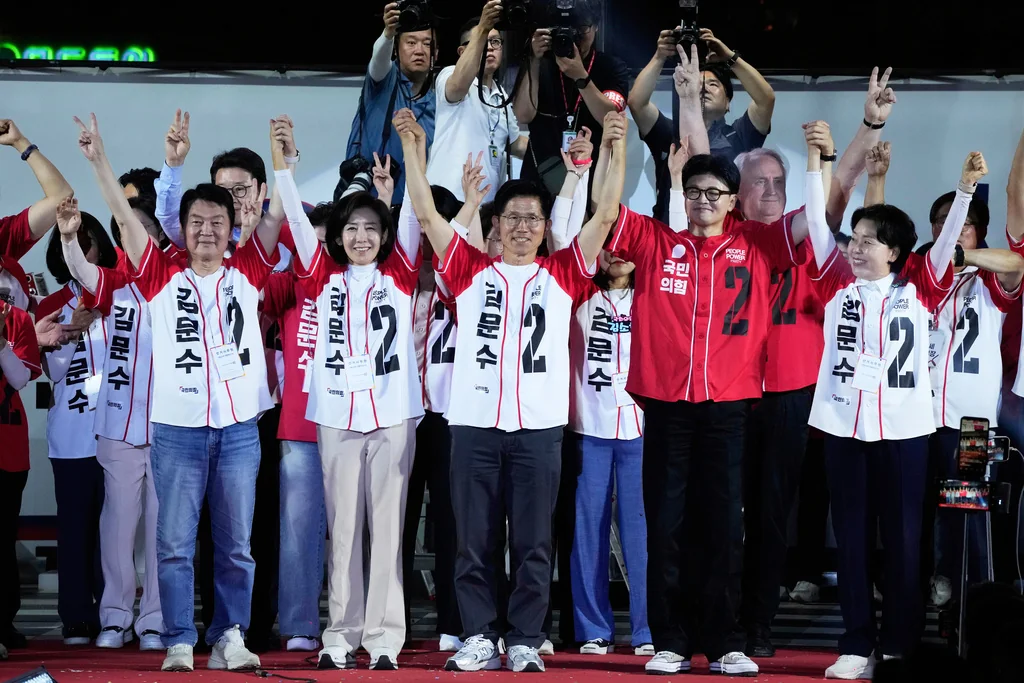
While it is almost certain that Kim or Lee will come out on top, there are technically four candidates on the ballot.
Lee Jun-seok, the candidate for the New Reform Party, is in a distant third with 11%. The fourth and final candidate, Kwon Young-guk of the Democratic Labor Party, is polling in the low single digits.
In addition to shaky foreign policy and a sluggish economy, South Korean politics continues to focus on the existential threat of collapsing birth rates.
EAST ASIAN GOVERNMENTS URGE UNIVERSITIES TO SCOOP UP HARVARD STUDENTS AMID TRUMP FEUD
After almost a decade of collapsing fertility, the nation saw a small uptick this year that the government attributed to a “change in social value, with more positive views about marriage and childbirth.”
South Korea recorded 238,300 births last year — still a far cry from the over 600,000 annual births recorded in the 1990s.

